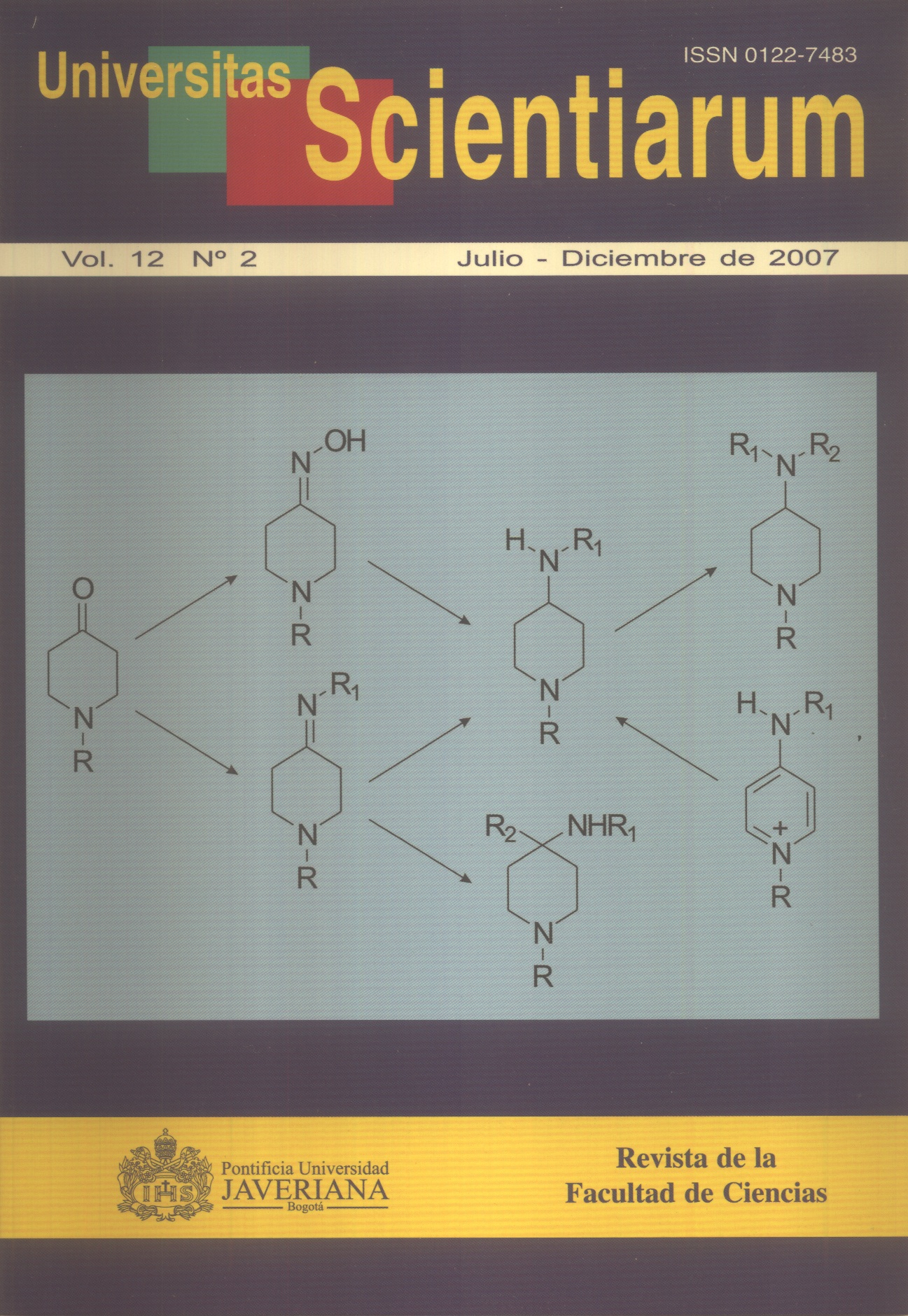Abstract
Con el fin de estandarizar metodologías que permitan determinar la concentración de bacterias nitrificantes y denitrificantes en compost, se propuso evaluar el crecimiento de estas bacterias en dos concentraciones diferentes del sustrato nitrogenado ((NH4)2SO4 y KNO3), en presencia y ausencia de CaCO3. Se utilizó la técnica de número más probable (NMP), revelando los tubos con reactivo de Griess (nitrito), reactivo de Nessler (amonio), y el polvo de zinc (nitrato). Se aplicaron 4 tratamientos para bacterias nitrificantes y denitrificantes respectivamente, trabajando a concentraciones de 0.5 o 0.33 g de (NH4)2SO4 y 0.5 o 2 g de KNO3, evaluados con respecto al mayor crecimiento de biomasa. No se encontraron diferencias significativas en la biomasa de los días 14, 15 y 16 para las bacterias nitrificantes, pero el día con mayor reporte fue el 15 con 115.88 NMP/g de compost, asimismo no se presentaron diferencias significativas que para las bacterias denitrificantes el día 15 y 16 arrojaron el mismo resultado con 31.42 NMP/g de compost. El tratamiento 1 hasta el día 15 (0.5 g de (NH4)2SO4 con 1 g de CaCO3 en nitrificantes y 0.5 g de KNO3 con 5 g de CaCO3 en denitrificantes) presentó mayor recuperación con recuentos de bacterias nitrificantes y denitrificantes con 112.67 NMP/g de compost y 27.53 NMP/g de compost respectivamente, al día 15. Se demostró que el sustrato nitrogenado, y la adición del carbonato de calcio son importantes para mantener del pH en el medio, promoviendo las reacciones enzimáticas asociadas.Univ. Sci. is registered under a Creative Commons Attribution 4.0 International Public License. Thus, this work may be reproduced, distributed, and publicly shared in digital format, as long as the names of the authors and Pontificia Universidad Javeriana are acknowledged. Others are allowed to quote, adapt, transform, auto-archive, republish, and create based on this material, for any purpose (even commercial ones), provided the authorship is duly acknowledged, a link to the original work is provided, and it is specified if changes have been made. Pontificia Universidad Javeriana does not hold the rights of published works and the authors are solely responsible for the contents of their works; they keep the moral, intellectual, privacy, and publicity rights. Approving the intervention of the work (review, copy-editing, translation, layout) and the following outreach, are granted through an use license and not through an assignment of rights. This means the journal and Pontificia Universidad Javeriana cannot be held responsible for any ethical malpractice by the authors. As a consequence of the protection granted by the use license, the journal is not required to publish recantations or modify information already published, unless the errata stems from the editorial management process. Publishing contents in this journal does not generate royalties for contributors.



